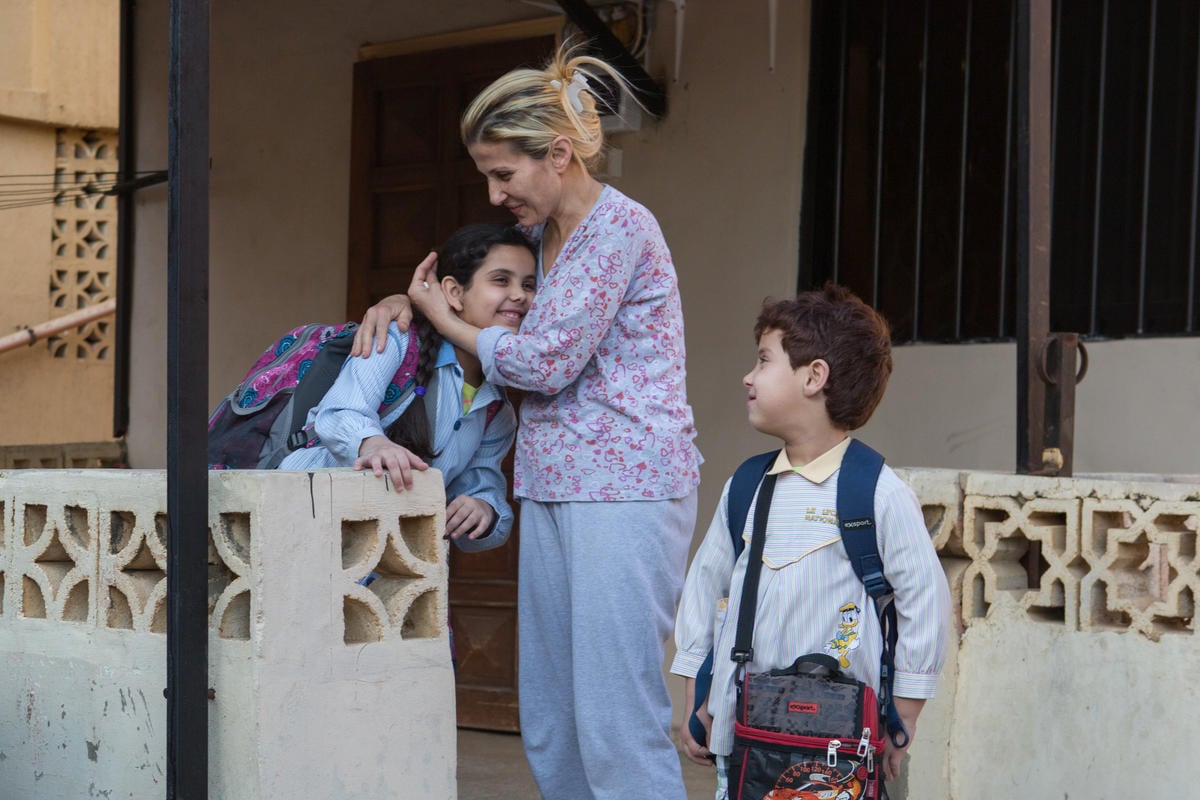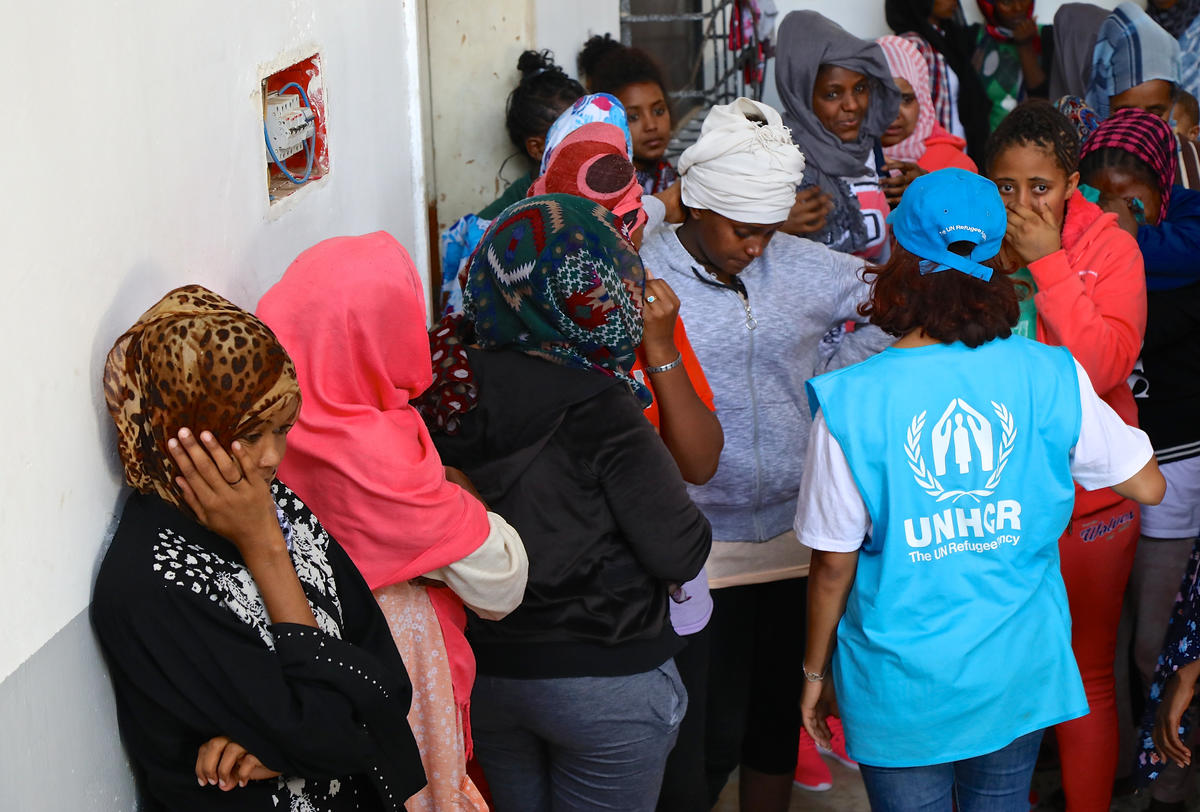Interactive game launched to help German youth better understand the plight of refugees
Interactive game launched to help German youth better understand the plight of refugees

VIENNA/BERLIN, March 6 (UNHCR) - Teenagers in German-speaking countries can gain insight into the trauma of fleeing persecution and seeking asylum experienced by refugees across the world in a new interactive game from the UN refugee agency.
The internet-based game, which can be found free of charge at www.LastExitFlucht.org is designed to appeal to the youth market. It is part of UNHCR's drive to promote positive attitudes towards refugees. The game does this by getting teenagers to go through the experience that millions of refugees have faced.
"While the clock is ticking, the player is forced to leave his or her home, escape persecution and flee towards an uncertain future in another country," explains UNHCR's regional representative for Germany, Austria and the Czech Republic, Gottfried Köfner. "There the player faces a different culture and a new language. As a refugee, the player must do his or her best not to give up but to rebuild their life in a foreign country."
Among the different scenarios, players must overcome obstacles in leaving their homes in search of safety and assistance. In exile, they must cope with the difficulties of starting a new school, not knowing the language and having to make new friends. They also experience what refugees go through when facing discrimination on the streets, applying for a job and generally starting a new life.
With 120 million people across the German-speaking world able to access this game, this is the largest ever audience of educational material by UNHCR in German. LastExitFlucht is a reworked version of a similar Swedish-language game Mot Alla Odds which was designed by UNHCR in Stockholm.
In addition to the virtual part of LastExitFlucht, the game provides a factual library including moving interviews with real refugees who tell their stories. An Iraqi boy describes what it was like to come to Europe after his father had been shot. A Chechen paediatrician tells of how after being granted asylum in Austria she has ended up cleaning toilets for lack of other opportunities. Samira, a 17-year-old Somali girl recounts her experience of becoming a refugee at the age of just five, and of the uncertain future she now faces after coming to Germany as an unaccompanied minor.
As well as the testimonies of refugees, LastExitFlucht is a lively educational tool, designed with both teachers and students in mind. It charts the history of asylum in Europe and explains the difficulties refugees in Europe currently face in upholding their rights. There is specific information about asylum procedures in Austria, Germany and Switzerland and a teachers' guide complete with a range of exercises.
The launch of LastExitFlucht has been enthusiastically received by both government bodies and private businesses, many of whom have pledged their support in its promotion. In Austria, these have included the Federal Ministry for Education, Science and Culture, the leading news website derStandard.at, M-Magazine which is donating free advertising space and the Raiffeisen Club, a youth club of the bank which is placing posters in banks. The Oscar nominated documentary film maker, Hubert Sauper, has also pledged his support to help promote the game. Across Switzerland, Germany and Austria, a total of 120,000 free cards will be distributed through schools to make the game known to the teenagers.
"I am delighted to see dozens of other websites and organizations planning banners and feature stories with links to the game," says Köfner. "This is just the beginning."
By Roland Schönbauer in Vienna, Austria








